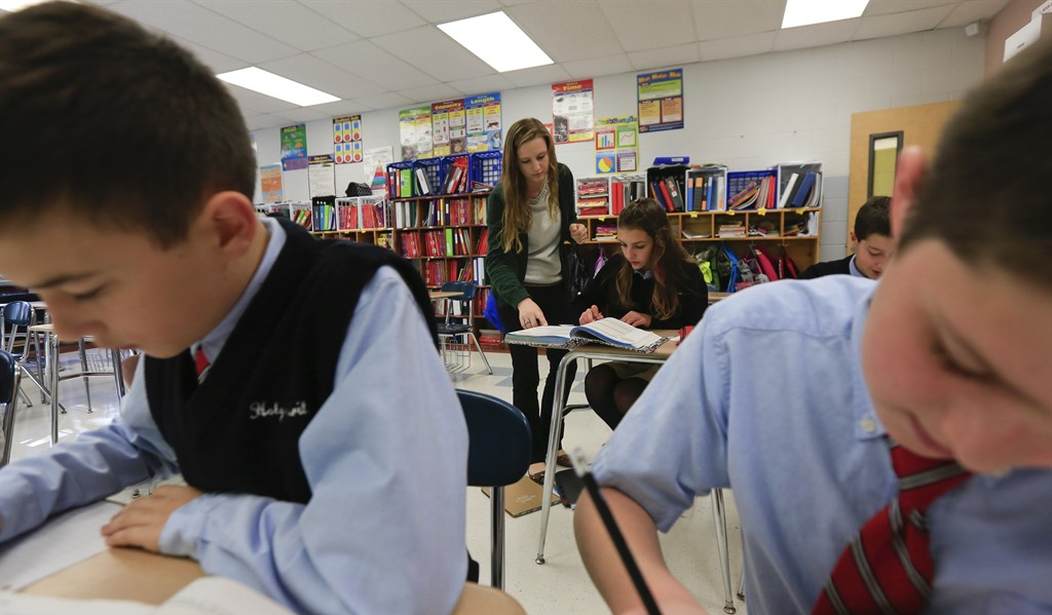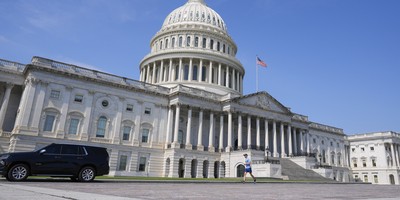Some credit Albert Einstein, others credit Benjamin Franklin, with the observation that "the definition of insanity is doing the same thing year after year and expecting different results." Whomever we credit, he was absolutely right. A perfect example of that insanity is education in general and particularly black education.
Education Next has recently published a series commemorating the 50th anniversary of James S. Coleman's groundbreaking 1965 report, "Equality of Educational Opportunity," popularly referred to as the "Coleman Report." In 1965, the average black 12th grader placed at the 13th percentile of the score distribution for whites in math and reading. That means 87 percent of white 12th graders scored higher than the average black 12th graders. Fifty years later there has been a slight narrowing of the math gap leaving the average black 12th-grade student at the 19th percentile of the white distribution; 81 percent of white 12th-grade students score higher. The black-white reading gap has narrowed such that the average black 12th-grader scores at the 22nd percentile of the white distribution, meaning 78 percent of white 12th-graders score higher.
Eric A. Hanushek is a senior fellow at the Hoover Institution at Stanford University and research associate at the National Bureau of Economic Research. His Education Next contribution is "What Matters for Student Achievement: Updating Coleman on the Influence of Families and Schools." Hanushek concludes, "After nearly a half century of supposed progress in race relations within the United States, the modest improvements in achievement gaps since 1965 can only be called a national embarrassment. Put differently, if we continue to close gaps at the same rate in the future, it will be roughly two and a half centuries before the black-white math gap closes and over one and a half centuries until the reading gap closes." I would like to know what American, particularly a black American, can be pleased with that kind of progress and the future it holds for black people.
Recommended
Many see smaller class sizes and more money as part of the general solution to our nation's educational problems. It turns out that since 1955 the average number of students per teacher has fallen from 27 to 16. During the same period real per-pupil expenditures have increased more than fourfold. Today, expenditures per pupil in the United States exceed those of nearly every other country in the world. The Program for International Student Assessment, or PISA, ranks 15-year-old student academic performance in 34 OECD countries. In 2012, the U.S. students performed below average in mathematics and ranked 27th. In reading, U.S. students ranked 17th; and in science, they ranked 20th. Such a performance gap suggests that smaller class sizes and bigger budgets, in and of themselves, are not a cure to our nation's educational malaise, particularly that of black students.
The most crucial input for a child's education cannot be provided by schools, politicians and government. As such, continued calls for more school resources will produce disappointing results as they have in the past. There are certain minimum requirements that must be met for any child to do well in school. Someone must make the youngster do his homework, ensure that he gets eight to nine hours of sleep, feed him breakfast and make sure that he behaves in school and respects the teachers. If these minimum requirements are not met, and by the way they can be met even if a family is poor, all else is for naught.
What the education establishment can do is to prevent youngsters who are alien and hostile to the educational process from making education impossible for those who are equipped to learn. That is accomplished by removing students who pose disciplinary problems, but the Barack Obama administration is even restricting a school's power to do that. You might ask, "Williams, what are we going to do with those expelled students?" I do not know, but I do know one thing: Black people cannot afford to allow them to sabotage the education chances of everyone else.
























Join the conversation as a VIP Member